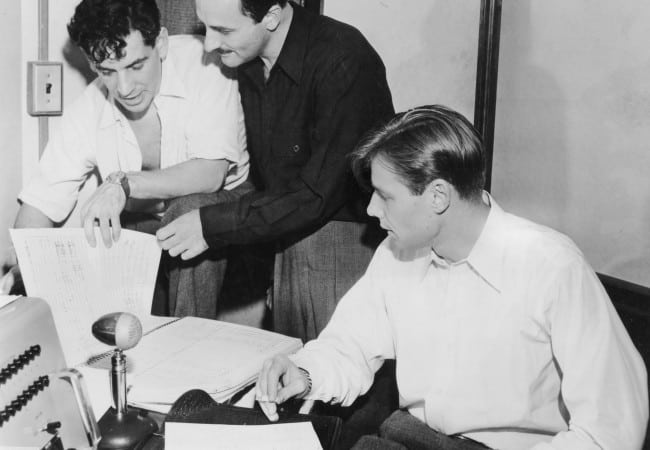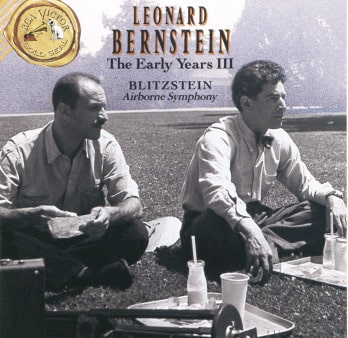The fruit of Blitzstein’s service in the Army Air Force during World War II, this impassioned work, part symphony, part oratorio, had a powerful effect when it premiered April 1, 1946 in New York under Leonard Bernstein. In its time, it was one of the most popular and effective American compositions that resulted directly from U.S. involvement in the war. Blitzstein composed it in 1943 and 1944 in England, where he was stationed. Then, in the course of shipping his effects home the following year the original manuscript was lost. Blitzstein rewrote the entire score on the ship as he returned home for demobilization.
The narrator (known as the Monitor) offers a brief history of human flight in the first movement – each of the three movements is divided into four sections – then the work shifts to the present, depicting the Axis as evil automata and offering a mournful catalogue of cities destroyed by bombs. The final movement introduces the Allied Air Force, with the humorous “Ballad of Hurry-Up” and the poignant “Emily,” in which a corpsman writes a letter to his girlfriend back home (“Emily,” or the “Ballad of the Bombardier,” became one of Blitzstein’s best-known songs). Yet Blitzstein resists easy triumphalism. As the work ends with the Allied victory, the Monitor shouts a repeated warning to humanity. Aerial bombardment may be necessary at times, but it is nothing to glory in or gloat over.
Critical reaction at the premiere was not unanimous, but the Symphony was warmly received and burnished Blitzstein’s reputation as an important American composer. Leonard Bernstein’s advocacy of the work resulted in two recordings made about twenty years apart. Listening to either one reveals that the Symphony has retained its power. Lengthy and lavishly scored, it is something of an undertaking to perform, but its melodic richness and sure sense of drama shine through now as they did seventy years ago.
A complete scan of autograph full score is found in the New York Philharmonic digital archives.
Performance materials available on rental from Schirmer, on behalf of Warner Chappell Music.



